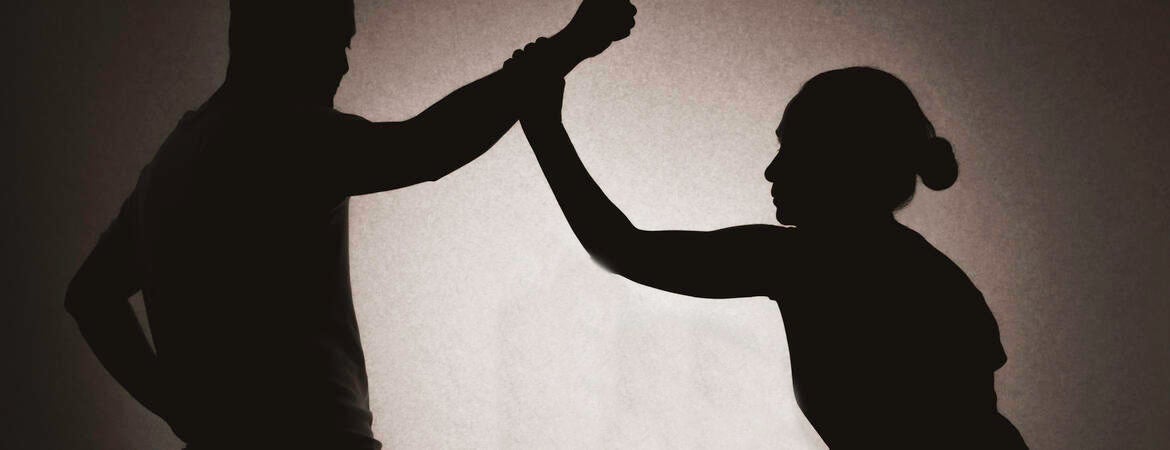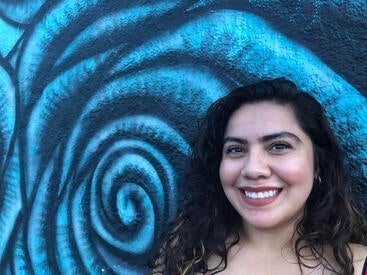
A new study from the University of California, Riverside, and the University of Wisconsin-Madison looking into the mental health and well-being of Latina college students who have experienced intimate partner violence, or IPV, emphasizes the need for culturally responsive approaches to support effective healing.
The study explored two types of well-being: a culturally specific, Latinx-specific well-being, and a more generalizable well-being applicable to the public at large.
IPV is a form of abuse occurring within romantic or intimate relationships. It affects college students at disproportionately high rates. Latina students are at heightened risk.
“Although the research is still growing regarding Latinas and IPV, what we do know is that strict and harmful gendered roles, self-silencing norms, historical trauma, family violence, and social/community experiences make Latinas more susceptible to IPV,” said Nancy Herrera, the first author of the study and a postdoctoral researcher in the Department of Psychiatry and Neuroscience in the UCR School of Medicine. “Further, there is a complex relationship of societal, cultural, and individual factors that contribute to Latinas’ heightened susceptibility to IPV.”
Published in the journal Violence Against Women, the study used the Psychosociocultural Framework to examine the role of resilient coping, social support, and marianismo (a traditional Latina gender role) in shaping culturally grounded (emic) well-being and universal (etic) well-being. Findings revealed that these factors collectively explained 19% of emic well-being and 38% of etic well-being, underscoring the relevance of culture in understanding trauma recovery.
Herrera explained that the Psychosociocultural Framework is used to investigate whether and how specific psychological, social, and cultural variables, both individually and collectively, influence education and mental health outcomes. She said the framework was created to understand the experiences of historically minoritized students through a holistic and empowerment lens.
The study found resilient coping was a strong predictor of both emic and etic well-being. Social support was significantly related to etic well-being but not to emic well-being, suggesting that traditional measures of support may not fully capture Latina students’ lived experiences. The researchers found Marianismo was inversely associated with well-being, particularly when internalized in ways that reinforce self-sacrifice and discourage help-seeking. The study acknowledges marianismo’s dual role: it can offer both strength and constraint.
Participants included 453 Latina college students across the United States, all of whom identified as IPV survivors and were no longer in abusive relationships at the time of the study. They completed an anonymous online survey distributed via Latina-centered social media accounts and university programs.
Herrera said one of the study’s main implications for mental health providers is the importance of attending to the well-being of Latina survivors by considering their cultural and gendered identities.
“Centering their culture in the context of their trauma is an essential component to their healing, resilience, and educational persistence,” she said. “Research implications include the need to develop, test, and norm questionnaires for the community being studied. That is not to minimize the importance of mental health questionnaires for use across communities; a combined use of culturally informed and generalized mental health questionnaires is overlooked by one form of questionnaire, potentially affecting Latinas’ healing journey.”
A Latina survivor of IPV, Herrera said navigating higher education while healing from her trauma informed her identity as a researcher and psychologist.
“My healing journey became my inspiration to help other Latinas who are trying to complete a degree while simultaneously healing from their trauma via research and through therapy,” she said. “The likelihood of Latinas entering universities with a history of IPV, experiencing IPV on college campuses, or both, informed this study. Understanding Latinas’ experiences is essential to provide culturally congruent and affirming services that better support their healing and wellness on college campuses.”
Herrera plans to further understand the resilience and healing of Latina survivors within the context of higher education. Her follow-up studies will build upon and expand upon the current study, creating “culturally congruent mental health models and treatments to address the unique and cultural experiences of Latinas adequately.”
“Latinas’ culture and unique experiences add complexity and context that is further augmented as college students,” Herrera said. “Studies like ours can serve as a foundation for attending to the experiences of other women of color who are both survivors of IPV and college students.”
Herrera was joined in the study by Alberta M. Gloria of the University of Wisconsin-Madison.
The title of the paper is “Latina College Student Survivors of Intimate Partner Violence: A Psychosociocultural Approach to Their Etic and Emic Well-Being.”




